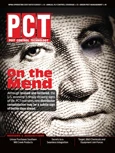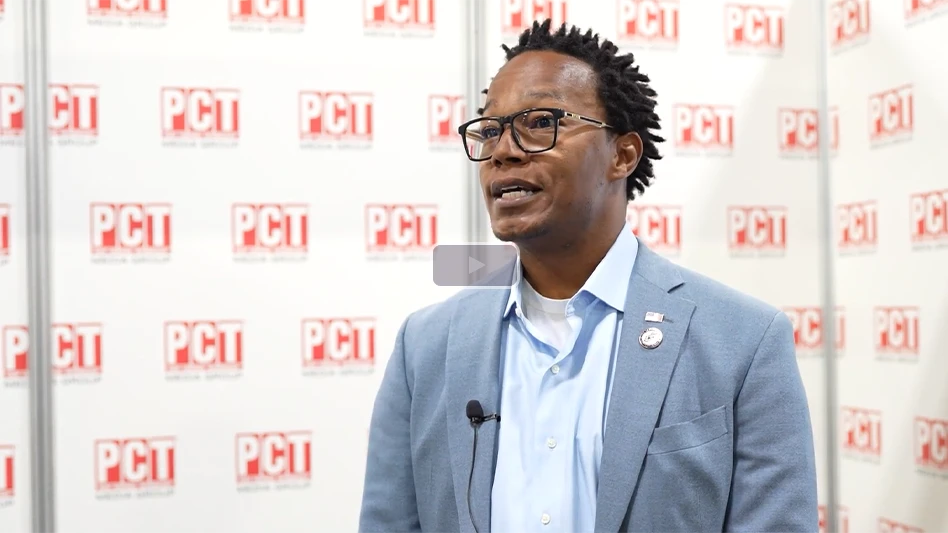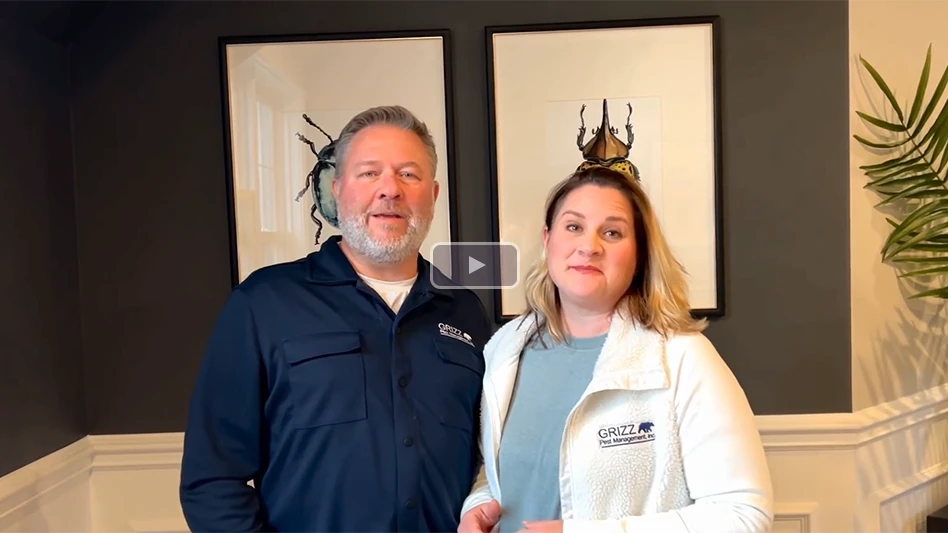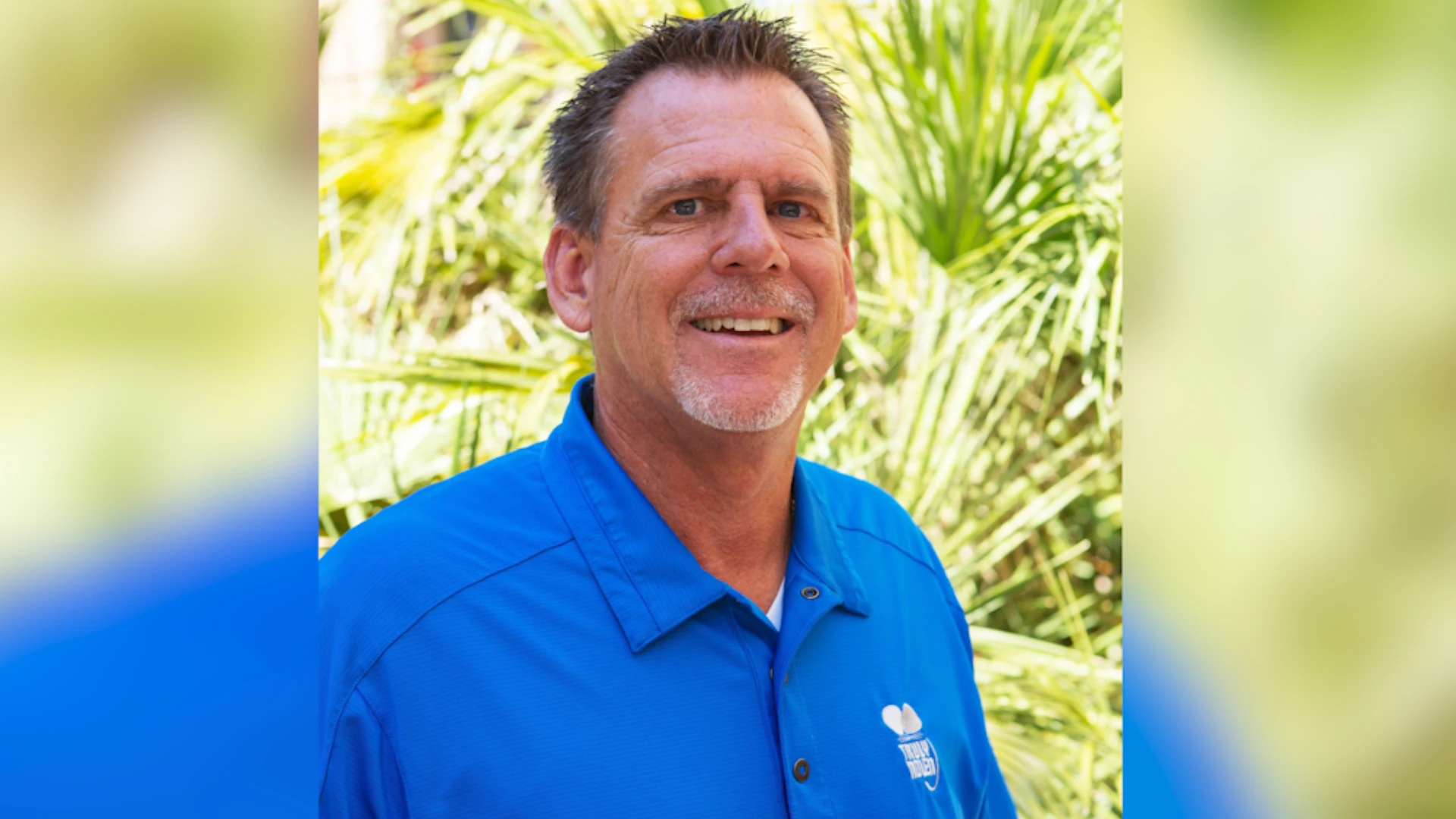Whether in business or sports, competition brings out the best in people. Apple and Microsoft spend millions of dollars annually trying to convince you their technology platform leads the marketplace. Without Joe Frazier would Muhammad Ali be considered one of the greatest heavyweight boxers of all time? We’ll never know.
The same is true of the pest control industry. Whether you want to admit it or not, the No. 1 competitor in your market area may raise your blood pressure, but they’ve also earned your begrudging respect … and more often than not, the ultimate winner is the consumer.
That’s what made the recent acquisition of Middleton Lawn & Pest Control by Massey Services such an intriguing market development. The two companies have competed in the Central Florida market for more than 25 years, going "toe-to-toe" like two heavyweight boxers in the middle of a ring.
But all good things must come to an end. And the end (a new beginning?) for Middleton Lawn & Pest Control came on Dec. 16, 2009, when Massey Services purchased its longtime rival in an all-cash transaction while America found itself mired in of one of the deepest economic recessions in its history.
Sound crazy? Not if you’re CEO Harvey Massey. "I believe this is the best time to buy," he said. Why? "I’m a capitalist! There is no such thing as a bad economy where there is one."
And after nearly a half decade in business, the former senior executive at both Orkin and Terminix has seen just about everything. "I’ve lived through the wage and price controls of the 1970s and 21 percent interest rates in 1982. When I bought Walker Chemical in 1985, the only bank to offer me a fixed interest rate was Atlantic National at 12.5 percent, so I’m no stranger to challenging economic times." In fact, he says, adversity begets opportunity. "The economy purges itself every seven to nine years. Disaster for some is opportunity for others, so maybe this is the best time to make these kinds of acquisitions."
The Middleton purchase is a case in point. Massey says it was "a great opportunity" despite the fact the U.S. economy was in the throes of the "Great Recession" and access to capital was extremely limited, with most pest management firms choosing to circle the wagons and protect their bottom line rather than risk possible financial ruin by pursuing an ill-advised acquisition.
Yet despite last year’s toxic business environment, Tony Massey – the company’s second-generation president and COO – said "there was never a conversation I was involved in that we discussed the economy. We clearly understood going into the acquisition what we were facing. Once we said ‘yes’ to the question: ‘Do we want to do this?’ we were ready to go. We’re business people. That’s what we do."
"All of our acquisitions have been opportunistic as opposed to strategic in nature," added Bud Brewer, vice chairman, Massey Communications, a full-service advertising, strategic marketing and public relations firm. "Unlike other organizations, we’ve never gone out and said, ‘It’s feeding time,’" gobbling up competitors simply to grow our top line or achieve certain M&A benchmarks. "We’ve focused on organic growth."
Instead, whenever an acquisition opportunity presents itself, Executive Vice President and CFO Gwyn Elias – a savvy South African with longtime ties to Harvey Massey – and Senior Vice President Jean Nowry perform a dispassionate assessment of the company’s financials, providing an up or down vote that like everything else at Massey Services is based on a complex series of metrics.
"Gwyn and Jean did all the financial analysis, while Tony did all the opera-tional analysis, so we knew exactly where the business stood," Harvey observed. "We had the entire business broken down by ZIP code (i.e., productivity, services offered, profitability, etc.). We’re very methodical."
After crunching the numbers, fend-ing off several high-profile suitors, and debating the merits of moving forward with the largest acquisition in the company’s 25-year history, Massey ultimately turned to Elias, Nowry and his son, Tony, saying, "Let me ask you guys something? Are you sure you want to do this? Tony’s position, Jean’s position and Gwyn’s position never wavered," Massey recalls. "Tony said, ‘If we look back on this and don’t do it, we’re going to regret it.’"
With that, the deal was struck, laying the foundation for the next critical step in the acquisition process, the all-important integration.
*****
The Frog Stays … At Least for the Time Being
Successful brands are valuable commodities. That’s why Massey Services has no intention of firing "Froggie" – the public face of Middleton Lawn & Pest Control. "We plan to retain the frog for our landscape service business," said CEO Harvey Massey, likely resulting in a supporting role for "Augie," the smiling face of Massey’s GreenUP landscape service for many years (see new "Froggie" brand at right).
Despite their competing interests, "Augie welcomed Froggie to the neighborhood" following the acquisition, laughed Bud Brewer, vice chairman of Massey Communications, Orlando, Fla. "What Middleton did in building their brand the past five or six years was quite impressive, so we’re going to ride that horse," he said.
The same will not be true for the Middleton Lawn & Pest Control brand, however, which will disappear over time from the Orlando market. "You will likely see the Middleton name for a couple of years, but after that we’ll gradually gravitate away from the name as we change over our vehicles and building signage to reflect the Massey brand," Massey said.
******
A TEAM APPROACH. Fortunately for Massey Services, negotiations for the purchase of Middleton Lawn & Pest Control were so protracted that the company had ample time to plan ahead should the sale become a reality, creating a five-person Integration Team led by Vice Presidents Ian Robinson and Lynne Frederick, who were tasked with ensuring a seamless transition. "We had plenty of time to put everything together," Harvey said, so there would be no excuses if the integration process didn’t go according to plan.
The team quickly put together a 25-page plan, complete with color-coded spreadsheets documenting every step of the integration process, with the goal of ensuring the company’s benchmarks would be met. "It was an extremely ambitious plan," Tony said. "Our goal was to complete the integration in three months, so we couldn’t waste any time." Harvey put it even more succinctly: "We had timelines for everything imaginable."
With no time to waste, once the papers were signed and the acquisition announced, the Integration Team immediately jumped into action. To ensure the company got off on the right foot with Middleton’s 500+ employees, within hours of the sale a special "welcome" letter was drafted by Harvey and Tony Massey. The letter highlighted the "shared values" of the two organizations, using purposefully deferential language to welcome Middleton’s employees – who were arch rivals just 24 hours before – into the fold.
"Both companies share the same commitment to total customer satisfaction, have a passion for giving back to the communities in which we do business and ultimately share the same vision of being the best service companies in our industry," the letter stated. "We’re very proud to welcome Middleton Team Members to the Massey Services organization."
Promising future communication to flesh out additional details of the integration, Massey executives implored their new colleagues to keep their eyes on the ball during the transition. "During this time, it is critical that we continue to focus on the job at hand – growing our business and providing exceptional customer service to our customers. In other words, we must continue to do what we do best!" The letter concluded: "We welcome you into our company, our culture and our hearts," once again reinforcing Massey’s family-friendly business model characterized by comprehensive systems and procedures, personal accountability, environmental sensitivity and community service.
A second letter – touching on many of the same themes – was sent to all 780 Massey associates, pointing out that the combined organizations – ranked #12 and #13, respectively, on PCT’s Top 100 List – will create "one of the most impressive service organizations" not just in Florida, but "in our nation."
"The first thing you attempt to do in any acquisition is to have a love affair with the new team members and the customers," Tony Massey observed. "That’s the way we approach every acquisition. Things are moving fast, so it’s not about immediately changing everything that is currently in place." It’s about "best practices," he said, and "getting to know each other."
The letter of introduction was the first step in the "getting to know you" process, followed by personal visits to Middleton’s corporate headquarters as well as a number of branch offices throughout the state by members of Massey’s leadership team, a strategy that has proven effective for Orkin Pest Control in its acquisition of a number of high-profile companies, including Western Pest Services.
Immediately following the sale, Harvey and Tony traveled to Middleton branches in Daytona, Edgewater and Cocoa Beach, followed by visits to the Lakeland, Tampa and Brooksville operations, often rising at the crack of dawn and returning home late at night feeling tired, but energized. "After meeting with Middleton employees out in the field I told my wife, it’s like talking to our own people," Harvey observed. "After those meetings I didn’t have one degree of apprehension that the integration wouldn’t go well."
What they soon realized as a result of their forays into the field, however, is that many of Middleton’s service technicians had relatively short tenures with the company. "One of the things we saw after traveling to some of the branches is a lot of people had only been with Middleton a year or a year and a half, and for the past eight or nine months they knew the business would be sold," Harvey observed. "They just didn’t know to whom, but when they learned it was Massey, they were relieved because they liked the idea of being a part of a family environment."
During one memorable meeting early in the process, Harvey was approached by a technician who said he was excited to work at a company "where the owner and CEO will sit down and have a barbeque sandwich with you," once again reaffirming his belief that purchasing the highly-regarded, yet underperforming, firm was the right decision.
WHAT ABOUT THE CUSTOMERS? Once both staffs were up to speed, the Integration Team reached out to Middleton’s 100,000 customers, 60 percent of whom purchased lawn care services, one of the key reasons the acquisition was so attractive to Massey Services. "Middleton had a much larger lawn business than we had," Harvey observed. Of the $57 million in revenue generated by Middleton in 2009, approximately $30 million was in lawn care. By comparison, lawn services account for only $19 million of Massey’s $75 million in annual revenues, which is why the company plans to continue utilizing "Froggie" – the popular Middleton brand – in its lawn care advertising (see related story, right).
The first order of business in reaching out to Middleton’s customers was to allay any fears that previously signed service agreements or guarantees would not be honored, so the Integration Team mailed a letter on Massey/Middleton letterhead stating that customers may "notice some changes" in the coming weeks, but the changes "will be made without disruption to your service or service technician. Be assured, all guarantees and agreements will remain intact."
The Integration Team also used the letter as a way to promote Massey’s "green" credentials, pointing out it had "received numerous environmental awards" throughout its 25-year history. Accompanying the letter was a glossy insert – "A Company above the Rest" – which highlighted Massey’s commitment to "the highest standards of business ethics, environmental responsibility, technical innovation and professional image."
As a way to further enhance communication with customers during this critical period, Massey also printed 300,000 fliers ("Frequently Asked Questions"), which it used as statement stuffers throughout the winter. The professionally produced fliers answered a variety of questions including:
Will I continue to receive service from my regular technician?
Is my service charge going to increase as a result of this change?
Can I still pay online?
"We did our best to anticipate as many questions as we could," Harvey said. "We wanted to assure our Middleton customers that there would not be any changes to their service technician or price and every contract you have with Middleton will be honored."
Massey also gave Middleton customers a way to "vent" in the event they ran into any customer service issues during the transition, providing them with a toll-free number, as well as a custom e-mail address – wecare@masseyservices.com – to communicate with the company’s customer service representatives, all of whom were coached in how to respond to questions about the integration.
While only a small percentage of Middleton’s customers took Massey up on its offer to respond, the letter and collateral materials accomplished what they set out to accomplish, and that was to allay customer fears that the acquisition would disrupt their service, invalidate a warranty or displace their service technician. "All of our efforts paid off," Tony said. "We received very few inquiries throughout the initial stages of the transition process."
KEY STRUCTURAL CHANGES. In addition to regular communication with its customers, Massey Services also realized a successful integration would require various management changes and structural modifications to the business, an inevitable by-product of bringing two such large organizations together.
While top management at Middleton resembled a revolving door in recent years, the overall organization featured some top talent, including Jeff Buhler, vice president of operations, and regional managers Mike Swanson and Greg Kopplow, all of whom have taken on key roles at Massey Services. Buhler recently was promoted to executive vice president of landscape services, where he will oversee all lawn care operations, while Swanson and Kopplow were named regional managers of Massey’s GreenUP East and GreenUP West Divisions. "They had lots of good people over there," Harvey said, "and our goal was to retain those people."
In fact, during the early days of the integration, "we left the majority of Middleton’s business under its current leadership structure," Tony observed, resulting in minimal disruption to the day-to-day opera-tion of the business. "We wanted them to concentrate on getting comfortable with how we do things."
The Integration Team also decided Middle-ton salespeople should report directly to Massey’s central office operations, utilizing a single rate card for all new business that was sold moving forward. In addition, they directed the sales staff, particularly in the early days of the integration, to concentrate its efforts on serving existing customers, not necessarily selling new accounts. "We said to ourselves, let’s temporarily remove the sales function and let them concentrate on communicating with their customers," Tony said. "We wanted them to focus on customer retention. We did not want them to be worrying about producing additional sales."
Massey’s top management, in concert with the Integration Team, figured if they could accomplish four key goals dur-ing the integration process, they would be successful. They included: (1) retaining as many Middleton customers as possible; (2) making Middleton employees feel optimistic about the future; (3) transferring Massey’s "best practices" to representatives of the new organization; and (4) completing the integration process in 90 days.
"Operationally, I had all the confidence in the world in our business," Harvey said. "The managers who run these businesses, the executives who have stayed with our company for so many years, they know what they’re doing. That’s why I had complete confidence the integration would be successful."
But the company still had to execute the plan, not an easy assignment. Fortunately, that has been Massey Services’ calling card for nearly three decades. "Operational excellence is our trademark," Tony Massey said. "We really do know how to execute on the ground with the customer. We’ve proven it year after year, so it was just a matter of executing the plan."
And that’s exactly what they did. From December 16th, when the papers were signed, to April 1st, the drop dead date for the consolidation of the two companies, Massey Services hit virtually all of its benchmarks, finishing nicely ahead of plan for the first quarter of 2010 and laying the groundwork for its 26th consecutive year of growth, this time with one less competitor in the Orlando market.
"The whole integration plan has gone along better, smoother, and faster than anyone anticipated," Harvey said, "and we haven’t had to lay off one person. We’ve been blessed."
Now Massey Services must identify the next challenger to its throne in the Central Florida market. After all, they don’t want to get soft. Remember, once Joe Frazier retired, Muhammad Ali was never the same.
The author is publisher of PCT magazine.

Explore the June 2010 Issue
Check out more from this issue and find your next story to read.
Latest from Pest Control Technology
- Webinar: ActiveGuard Will Positively Impact Your Bottom Line
- MGK Announces EPA Registration of Botanical Active Ingredient Veratrine
- Termite Control Sales Strategies
- NPMA Announces ELP Class of 2025
- Termite Control Tools and Equipment for PMPs
- Choe Reviews Drywood Termite Geographical Hotspots, Latest Research Findings
- Mosquito Squad Announces Rebranding to Mosquito Squad Plus
- Pest Control Equipment: If it’s Critical, Back it Up!





